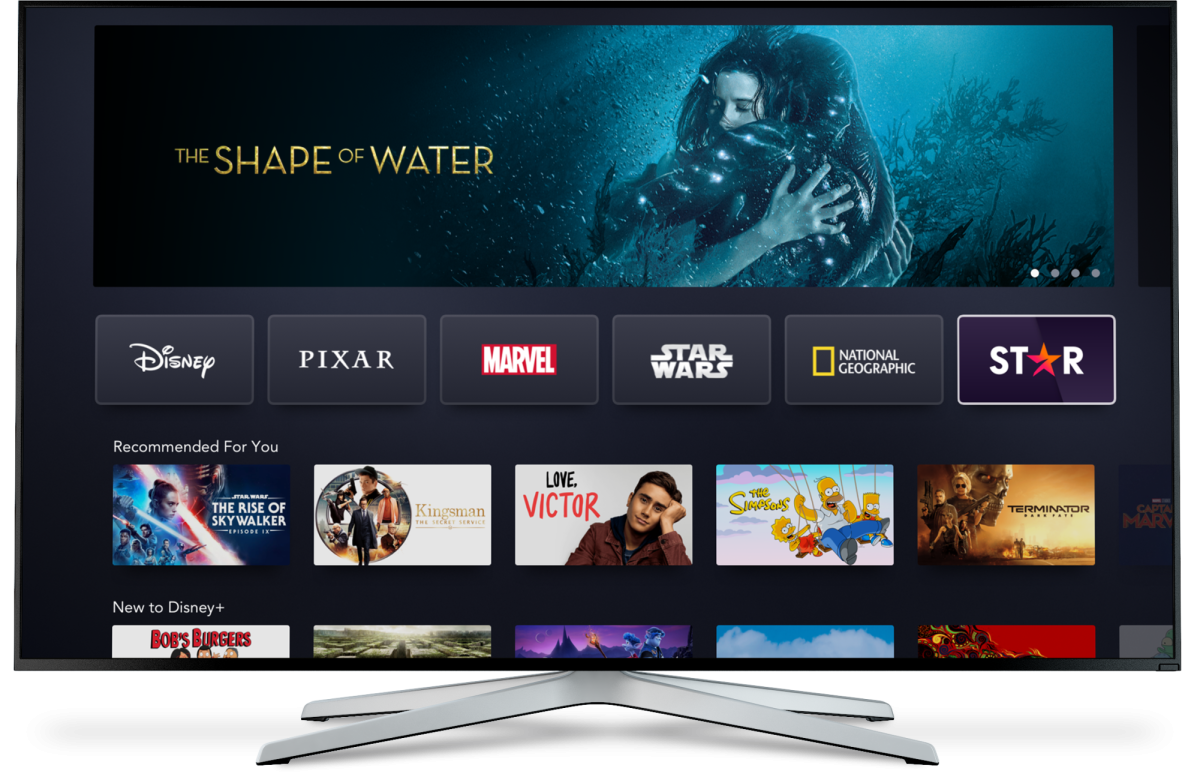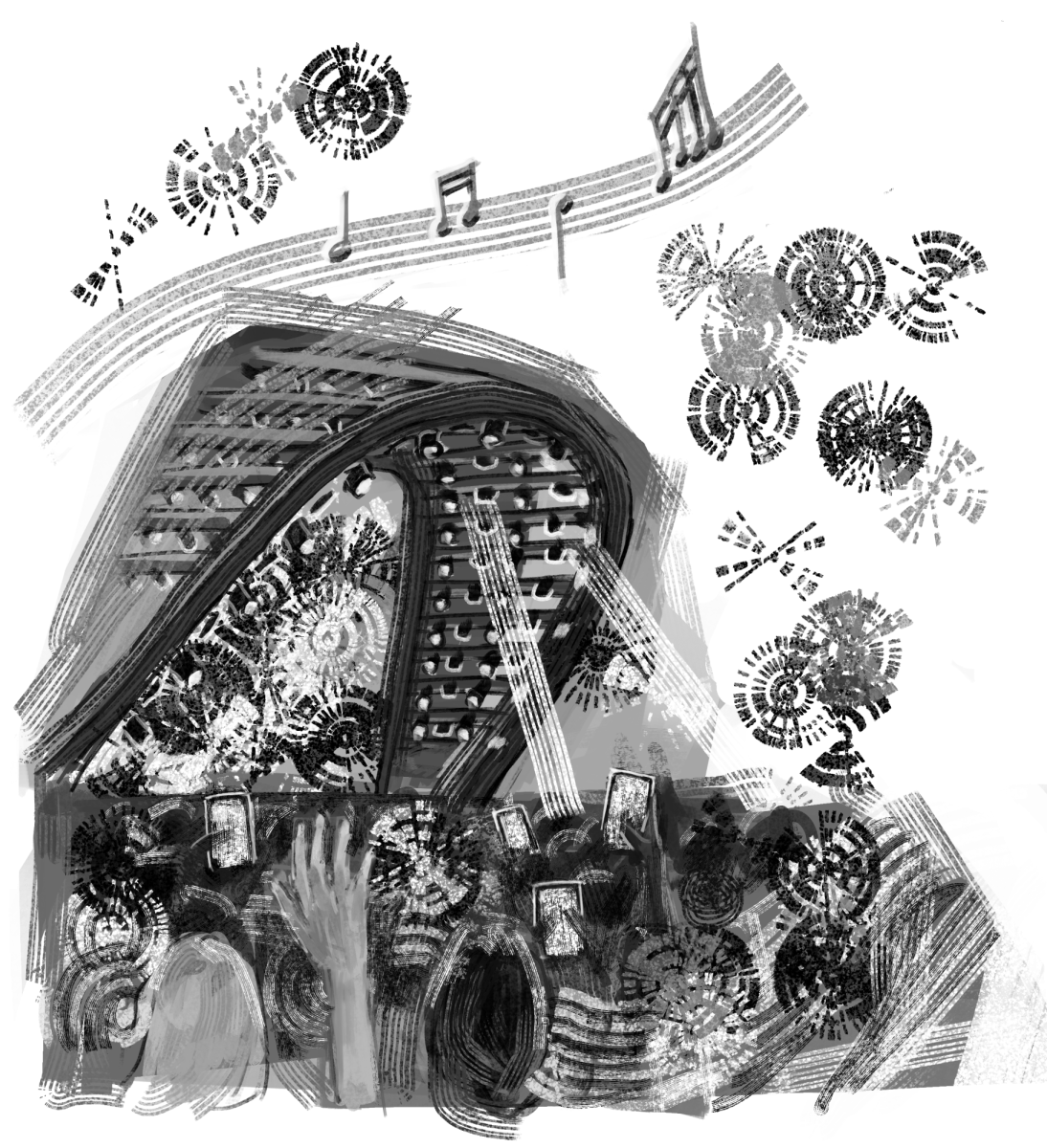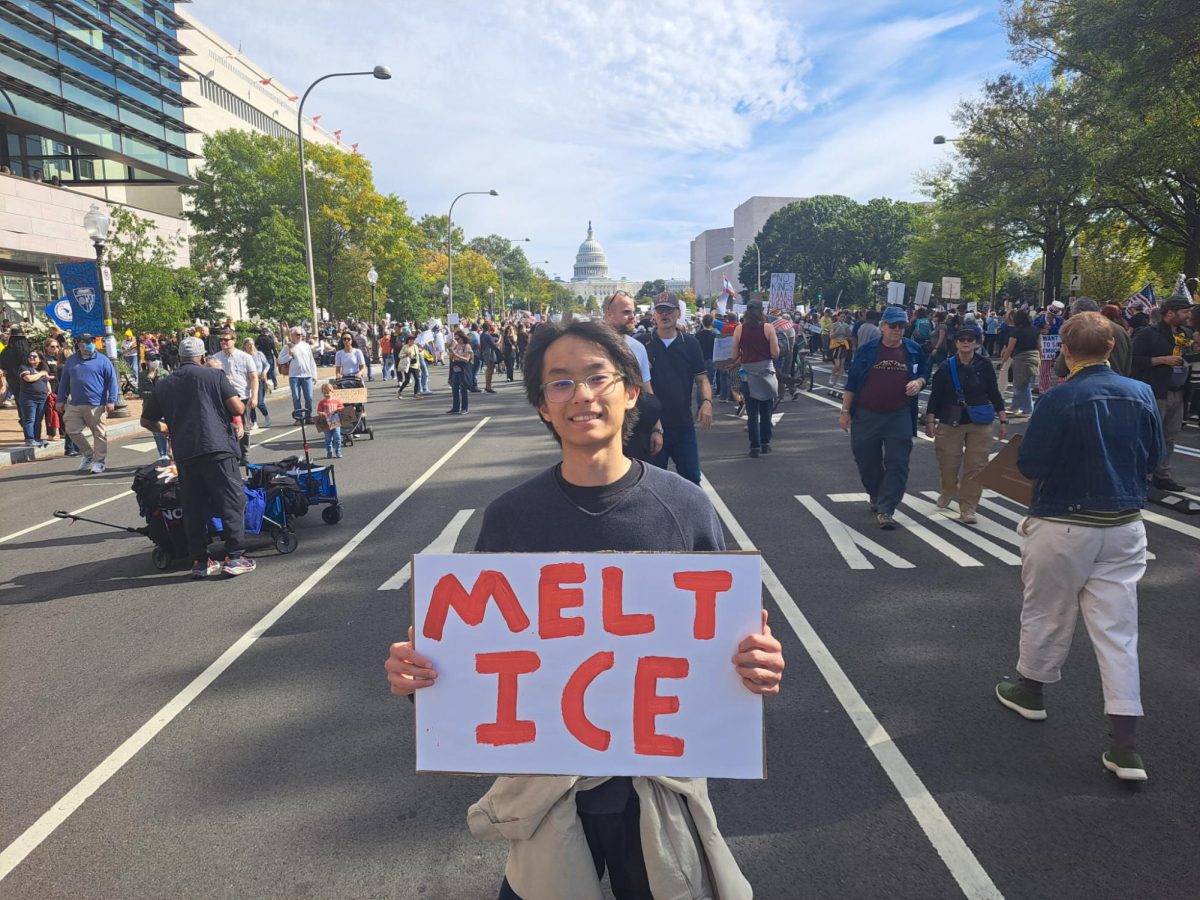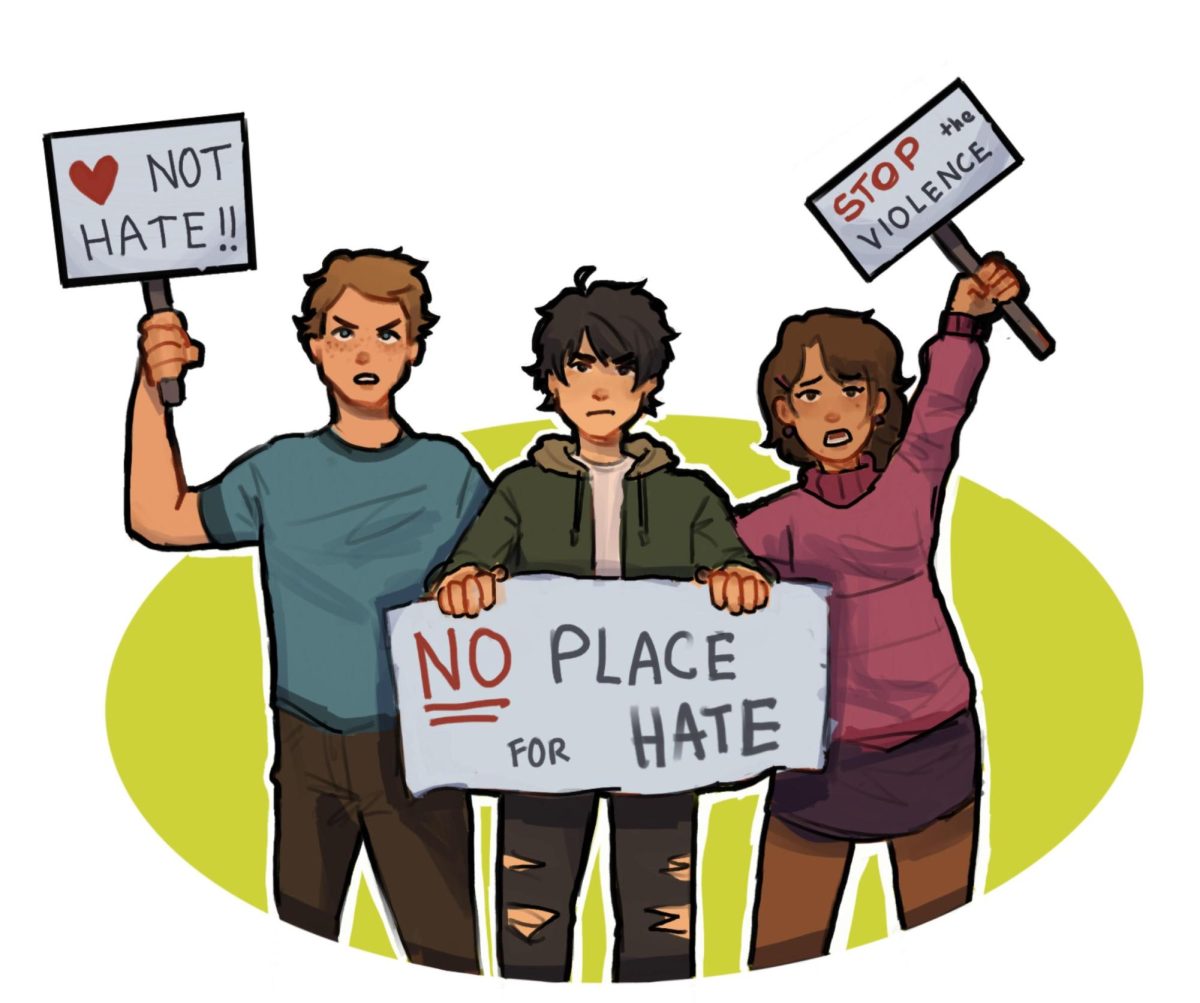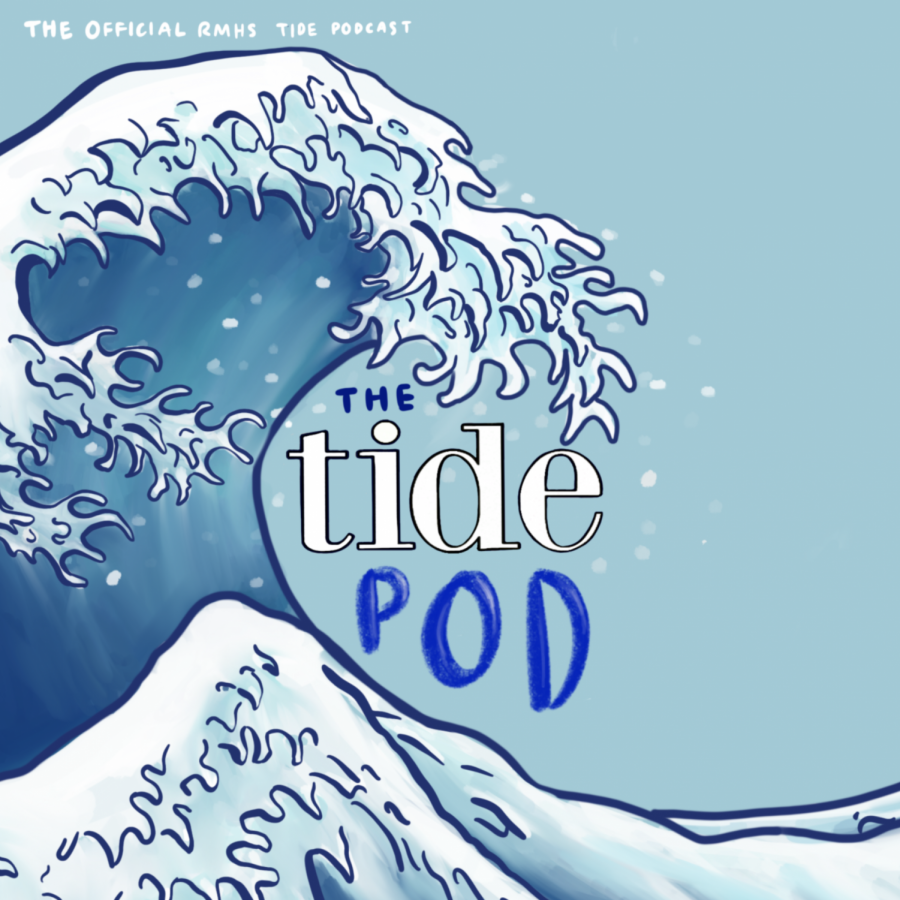If you tuned into a late-night television talk show any time in 2017, chances are, it would focus on the political sphere. Politics then (and today) were full of drama, controversy and partisan arguments: what congressperson said what, what the president tweeted…the list goes on. With nonstop press coverage of the current president since his inauguration, talk shows seemed to get new comedy material each day.
As a result, talk shows were never more political, with several of the most notable being The Late Show with Stephen Colbert (CBS), Last Week Tonight with John Oliver (HBO), Jimmy Kimmel Live! (ABC) and The Daily Show with Trevor Noah (Comedy Central). Jon Stewart, former host of The Daily Show, started a legacy of integrating politics into late-night with his funny, yet truthful takes on important issues. His legacy inspired this new wave of talk show hosts.
“I think they make politics more accessible and attractive,” senior Emily Zhou said. “Some people get all their news from late-night political shows because it’s way more interesting than ‘serious’ journalism.” A study from the Pew Research Center in 2016 showed that about 3% of Americans got their news on the election cycle from late-night comedy.
The most glaring sign of politics’ prevalence over late-night was probably the decline of The Tonight Show Starring Jimmy Fallon (NBC). According to The New York Times, two weeks into Trump’s presidency, Colbert’s decidedly more overtly political Late Show beat Fallon’s in late-night viewership for the first time ever.
“Talk shows are great because they often times provide us with information that we wouldn’t necessarily have looked up for our own,” junior Nick Vencill said. “I think just talking about issues is a fantastic thing, especially when they properly inform us and we wouldn’t have gotten this information on our own.” As an example of such, he referred to Last Week Tonight, which has won eight Emmys since 2015; its most popular YouTube clip, on Trump, has received over 33 million views.
“I really enjoy him because he often takes some serious and obscure issues and brings them to light in a very humorous manner…there’s a lot of issues that we aren’t paying attention to that we should,” Vencill added. “I like how he focuses on what’s going on in the news cycle currently but also on long-term issues that affect the nation like net neutrality…his show helps galvanize his audience to engage in politics,” Zhou explained.
Talk shows have not only brought awareness to issues, but have changed legislation. In May 2017, Jimmy Kimmel’s monologue on Jimmy Kimmel Live! about his newborn son’s heart defect provided an emotional appeal against Republican efforts to repeal the Affordable Care Act (ACA). “No parent should ever have to decide whether they can afford to save their child’s life. It just shouldn’t happen,” Kimmel said on his show.
As a result of this and subsequent monologues on healthcare where he urged viewers to contact their Congressional representatives, the issue received massive exposure, and Kimmel became, according to New York Magazine, “an unlikely hero to many on the left.”
With so much entwinement between U.S. politics and entertainment, many late-night hosts focused mainly on domestic issues. But then there was Trevor Noah, host of The Daily Show. Born in South Africa, he contributed a global perspective on events that allowed him to foresee the Trump presidency (by comparing the then-candidate to African dictators) in October 2015, over a year before the general election.
“Trevor Noah is a very talented person. His show is informative, inspirational and about real issues. His good content and his good sense of humor is the reason why he stands out to me.” Cheema, a junior and exchange student from Pakistan, said. “I think American talk shows don’t really talk about other countries that much but Pakistani talk shows do. That is one of the biggest differences.”
Perhaps in the future, other U.S. talk shows will adapt to follow Noah’s methods. But for now and the foreseeable future, they already serve a great purpose by increasing awareness on certain topics with much-appreciated levity. In 2017, late-night talk shows took audiences out of a “dumpster fire” of a political climate, as Colbert described it, into a barrel of activism-fueled laughs.
Featured graphic by Eric Kim. Additional reporting was contributed by Stella Ho.




